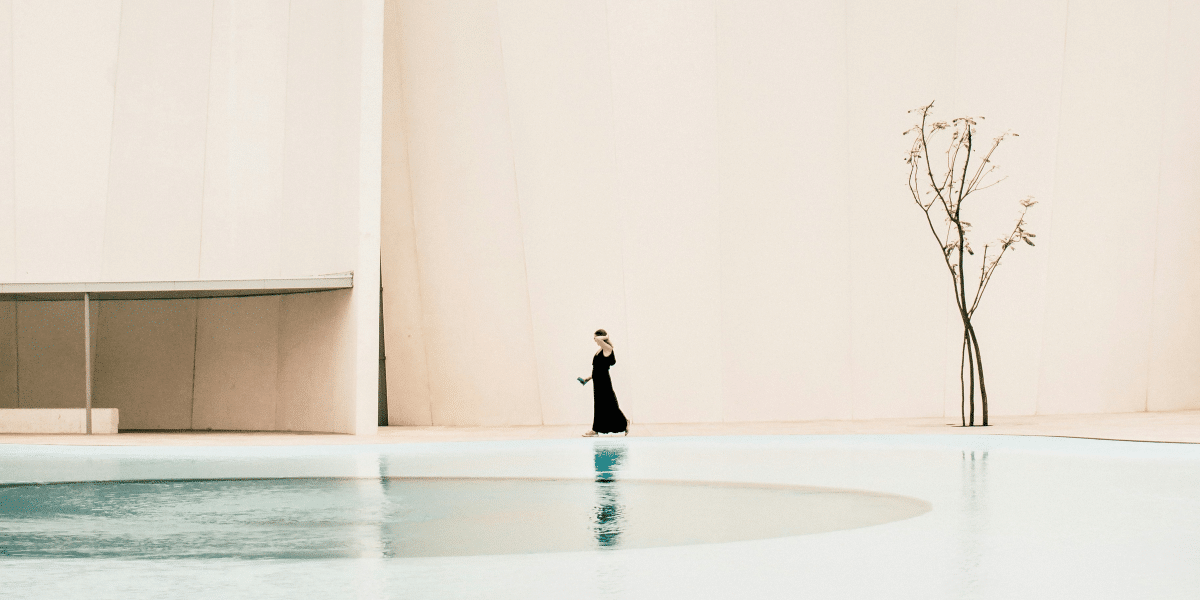The concept of minimalism has gained traction in recent years as more people seek happiness and fulfillment outside of material wealth. Rather than focusing on accumulating possessions, minimalism emphasizes simplicity, mindfulness, and a lifestyle that prioritizes what truly matters. For many, this approach has transformed not only their living spaces but their overall sense of well-being. Minimalism isn’t just about decluttering; it’s about creating space for a more meaningful life. Here’s a look at how minimalism can serve as a guide to a happier, less stressful life.
Finding Freedom in Less
One of the core tenets of minimalism is finding freedom from excessive possessions. When people accumulate items they don’t need, they often become weighed down by the responsibility of maintaining, organizing, and paying for these things. Minimalism encourages a shift away from the consumer culture that equates happiness with acquiring more. By owning only what truly adds value to one’s life, minimalists discover a newfound freedom. This freedom is about more than just physical space—it’s mental clarity and emotional lightness. For many, choosing a minimalist lifestyle is the first step toward freeing themselves from material dependencies.
Reducing Stress Through Simplification
Another powerful aspect of minimalism is its ability to reduce daily stress. Cluttered environments often contribute to feelings of anxiety, as the constant visual reminders of unfinished tasks or disorganization can weigh heavily on the mind. A minimalist space, free from unnecessary items, creates an environment that feels calming and focused. Without the distractions of clutter, people find it easier to focus on what’s important, whether that’s work, family, or personal growth. In this way, minimalism transforms a physical space into a mental sanctuary, allowing for greater peace and concentration.
This simplification extends beyond one’s living space. Minimalism encourages people to simplify their schedules, commitments, and routines, leading to a lifestyle that feels less hurried and more intentional. By learning to say “no” to what doesn’t serve their priorities, minimalists make room for experiences that bring them joy and satisfaction. Reducing stress becomes an achievable goal when people can focus on fewer, more meaningful activities.
Creating Space for Meaningful Experiences
Minimalism is about more than just reducing possessions; it’s about making space for what truly matters. By removing the distractions of material excess, minimalists find themselves with more time, energy, and resources to invest in meaningful experiences. Whether it’s spending time with family, pursuing a passion, or traveling, minimalism encourages people to value experiences over things. This shift in focus often leads to a deeper sense of fulfillment and happiness, as minimalists prioritize memories and relationships over material items.
For example, someone who adopts a minimalist lifestyle might choose to spend their money on a weekend getaway rather than the latest tech gadget. This choice isn’t about sacrifice; it’s about consciously choosing what adds value to their life. Minimalism promotes an experience-oriented lifestyle that many find more rewarding than the cycle of buying and consuming. It encourages people to define happiness on their own terms, rather than letting possessions dictate their satisfaction.
Cultivating Mindfulness and Intentionality
Minimalism is also closely tied to mindfulness and intentionality. When people practice minimalism, they become more mindful of their consumption habits and the impact of their choices. Rather than making impulsive purchases, minimalists take time to consider whether an item truly aligns with their values and needs. This mindful approach to consumption often extends into other areas of life, as minimalists learn to apply intentionality to their relationships, careers, and personal growth.
Practicing mindfulness through minimalism also involves appreciating what one already has. Minimalists often find satisfaction in a few cherished possessions rather than the latest trends by focusing on quality over quantity. This mindset cultivates gratitude and encourages a more thoughtful, less reactive approach to life. Minimalism, therefore, becomes a pathway to living with greater awareness, helping people to enjoy and appreciate the present moment.
Building a Minimalist Lifestyle Step by Step
While minimalism can initially seem daunting, it’s a lifestyle that can be embraced gradually. Starting small is often the key to success. For someone new to minimalism, beginning with one room or a single category, like clothing, can make the process feel manageable. Decluttering doesn’t have to happen overnight; it’s about making incremental changes that lead to long-term habits.
As people see the benefits of minimalism in one area, they often feel motivated to apply it to other parts of their lives. Gradually, this process creates a more balanced, intentional lifestyle that reflects their true values. Minimalism isn’t about achieving a perfect, sparse space; it’s about creating a fulfilling life aligned with one’s priorities. Embracing minimalism one step at a time allows for a sustainable approach to happiness, rather than a drastic change that feels overwhelming.
Minimalism as a Path to Authentic Happiness
In a world that often equates success with material wealth, minimalism offers a different path that prioritizes authentic happiness over possessions. By letting go of what doesn’t serve them, minimalists make room for what truly matters, creating meaningful and enriched lives. This lifestyle shift reflects a deeper understanding of happiness as something that can’t be bought or owned but must be cultivated through experiences, relationships, and personal growth.
Minimalism reminds people that happiness isn’t found in things but in moments, connections, and a life lived intentionally. For many, this lifestyle isn’t just about reducing possessions; it’s a journey toward greater peace, self-awareness, and contentment. By embracing minimalism, individuals can free themselves from the pressures of consumer culture and find joy in the simplicity of a life focused on what truly matters.
In the end, minimalism isn’t about deprivation; it’s about creating a life that feels richer in meaning, purpose, and happiness.
Published by: Khy Talara








